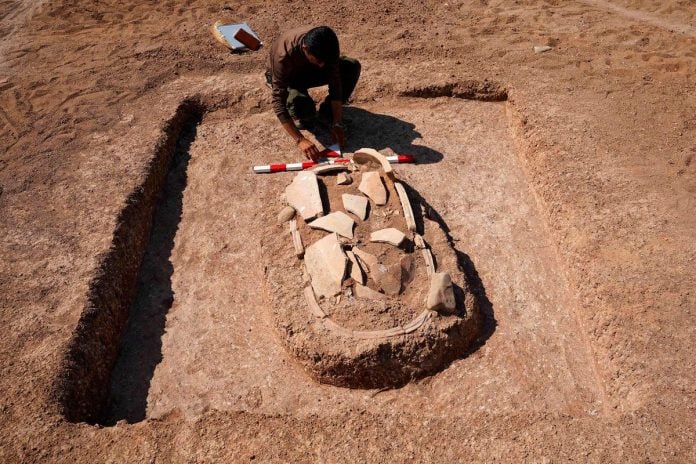KHANKE: Archaeologists have discovered forty ancient tombs in drought-affected Iraq after water levels receded in the country’s largest reservoir.
The tombs are believed to be over two thousand three hundred years old and were found at the edges of the Mosul Dam reservoir in the Khanke region of Duhok province.
“So far, we have discovered approximately 40 tombs,“ said Bekas Brefkany, the director of antiquities in Duhok who leads the archaeological work at the site.
His team initially surveyed the area in 2023 but only observed parts of a few tombs at that time.
They were only able to work on the site when water levels dropped “to their lowest” this year according to Brefkany.
Recent years have seen archaeologists uncover ruins dating back thousands of years in the same area due to consecutive droughts affecting Iraq for five years.
“The droughts have significant impact on many aspects, like agriculture and electricity. But, for us archaeologists… it allows us to do excavation work,“ Brefkany said.
The newly discovered tombs are believed to date back to the Hellenistic or Hellenistic-Seleucid period according to Brefkany.
His team is working to excavate the tombs for transfer to the Duhok Museum for further study and preservation before the area becomes submerged again.
Iraq faces particular vulnerability to climate change effects with rising temperatures, chronic water shortages and consecutive annual droughts.
Authorities have warned that this year ranks among the driest since 1933 with water reserves at only eight percent of full capacity.
They also blame upstream dams built in neighbouring Iran and Turkey for dramatically reducing the flow of the historic Tigris and Euphrates rivers that have irrigated Iraq for millennia. – AFP








